While The Rest of the World Was Tuning In, I Was Tuning Out
How Donald Trump's Presidency and An Unfortunate Timing of Trauma Dimmed the Political Passion in my Life
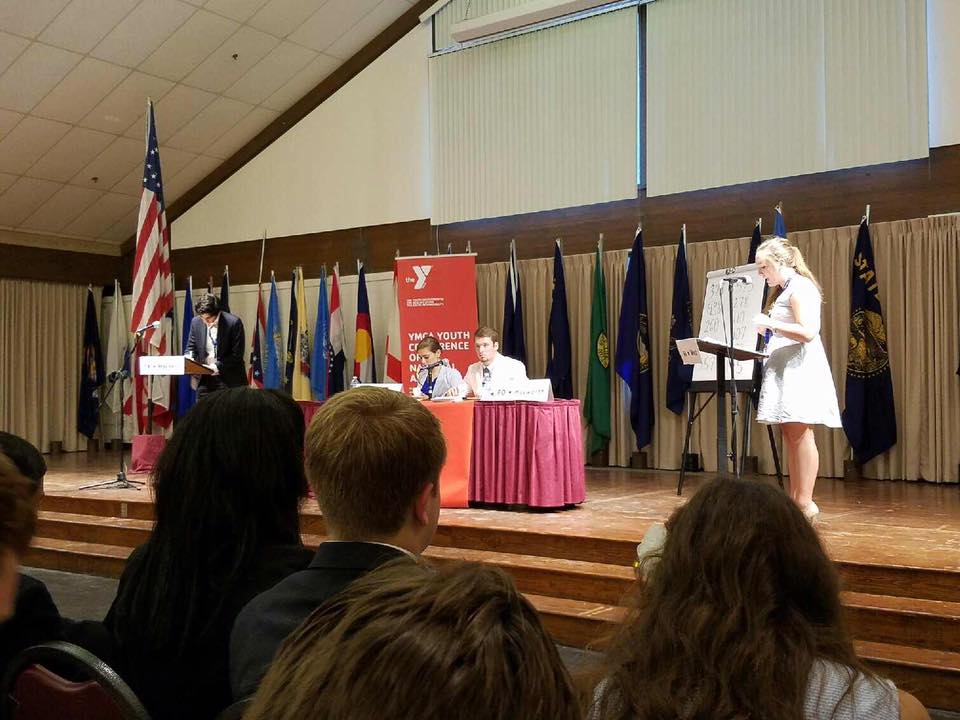
How My Life Flipped Upside Down
If you knew me in grade school, first of all, no you didn't. Second of all, you may be well aware that starting around fourth grade, I became abhorrently and ridiculously infatuated and involved in politics for someone who could barely tie their shoes without singing a song about bunny ears. However, by the time I was in high school, this obsession turned to passion which turned to action.
Lucky for me, I found a way to harness this passion and learn through it by joining a local chapter of a program called Youth and Government. During my four years of commitment to this program and the values of the YMCA, I was able to learn so much about coalition building, compromise, policy writing, the political process, professional relationships, and more. Youth and Government (YAG) simulated a real-life government experience, putting middle and high schoolers in roles of political leadership. I participated in the legislative branch of this program, meaning I got first-person experience crafting bills, advocating for causes, and working alongside other "legislators", "lobbyists", and "administrative officials". We even got to work with a "press corps" and some of our enacted legislation was sent for simulated judicial review.
Watching this process in real-time shaped the way I think about politics and gave me practical skills to apply to my life and career. In many ways, without this experience, I probably wouldn't see the political sphere in the same way since I now approach it from a place of realism instead of the theoretical and unhinged views that I had prior. I don't think even my college courses could have explained better how nitty-gritty politics really happens. I even had the opportunity to attend a national version of the conference three times call the Youth Conference on National Affairs.
All of this was great until probably the hardest year of my life: 2016.
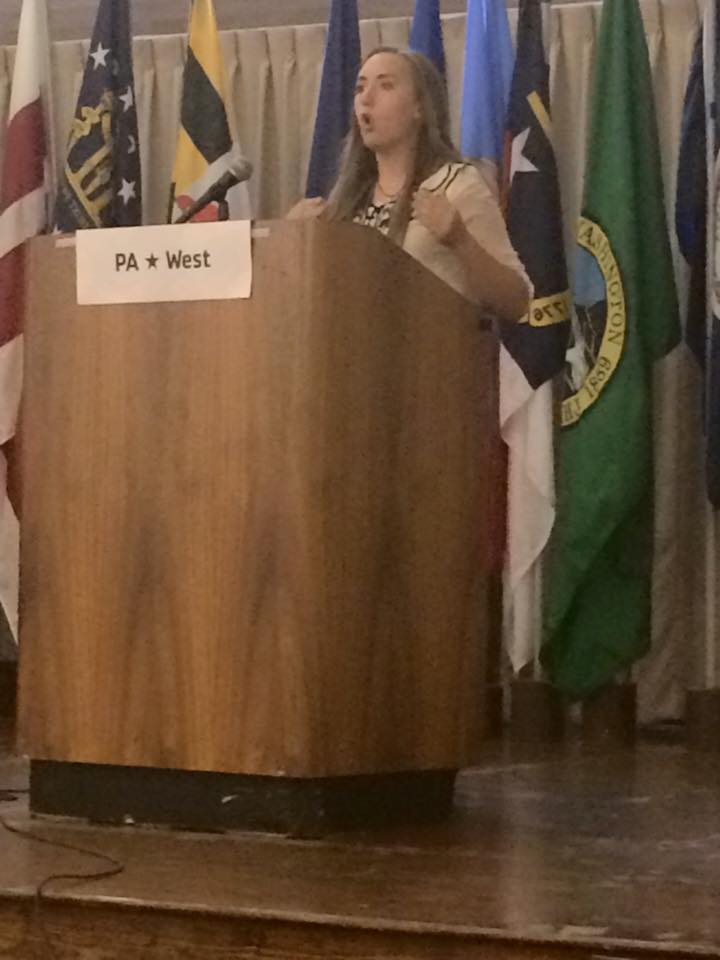
This year was the perfect melting pot of everything that could possibly go wrong for me. The summer before my senior year of high school, I turned my focus toward my mental health, exploring counseling, medication, and more to keep me afloat. However, this type of medical experiments (for lack of a softer term) did not mesh well with the political turmoil exploding in our country nor did it lend itself to a conducive state to engage in the pressures that came with this program I had known to love, especially without adequately trained support systems from my advisors who quickly cast off my concerns and negated my worries.
Entering into the 2016 political landscape meant different things to everyone, though. Donald Trump stirred up conversations that created hostility toward marginalized groups, increased hate speech, and further divided America. Truthfully, though, Donald Trump himself was not and is not the specific issue, but rather a symptom of larger institutional problems that needed to be addressed. In comparison to the political world that I had become so hooked on at a young age, this was probably one of the most exciting times in American politics. While it wasn't necessarily and still isn't a positive time, it was full of more commotion than I had ever witnessed before. For many, this incited a flame of resistance and a calling to learn more.
Suddenly, politics became trendy.
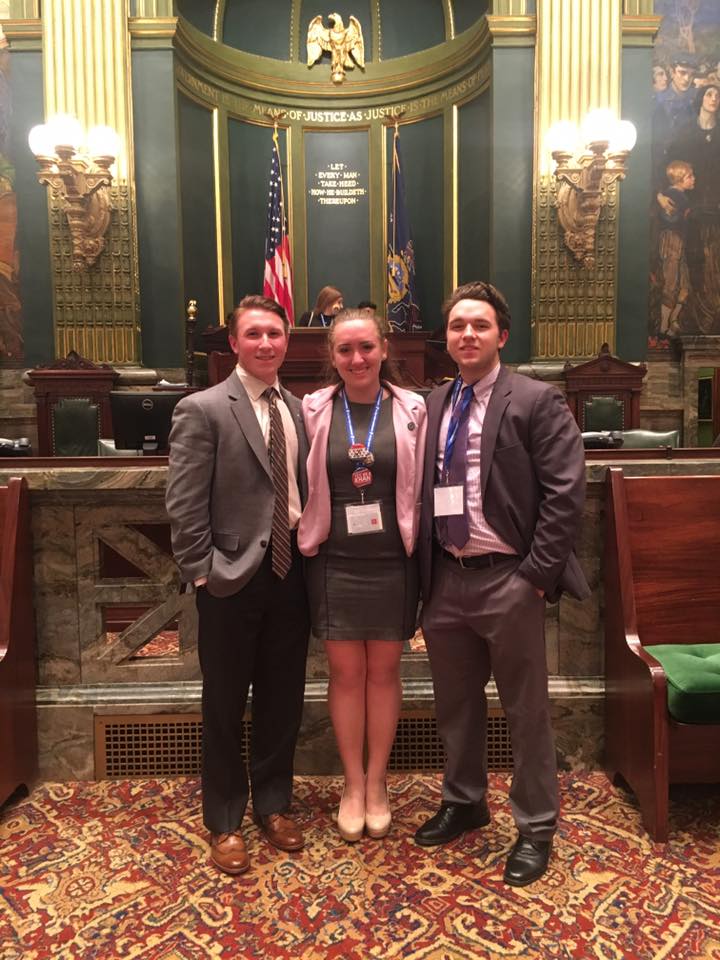
Misinformation and idealistic preaching became so commonplace that pushing back against this became almost impossible.
When I was growing up, I often felt isolated from my peers as I spent so much of my time stressing and crying over the woes of the world while they were more than happy to play dress-up. We were children, after all. Up until 2016, it didn't feel like politics was that important for most of us, especially because the term "politics" was analogous to economics, taxes, and money... all things that 12-year-olds typically aren't too interested in. For me, though, I've always had a passion for economics and recognized at an early age the importance of humanitarian work and the intersection economics has in it. Even talking to adults, they didn't usually seem to get it or care. Voting seemed to be a passive activity that they engaged in if they felt it wouldn't inconvenience them too much.
For my generation, we came into political enlightenment and engagement when Donald Trump became a looming threat to human rights. While I am forever proud of my generation for tuning in, timing also pushed me to tune out. Even more, unfortunately, by this time I had already committed to being a Political Science major in college.
What did it mean for me to tune out?
It would be nearly impossible to actually and fully turn out of politics, of course. For the past four years, politics has been bleeding further into pop culture. It's taken up almost every ounce of mainstream and social media. Life on a college campus (especially one in Manhattan) revolves almost solely around activism. If you're completely unaware of the political world right now living in America, then I would be beside myself in awe.
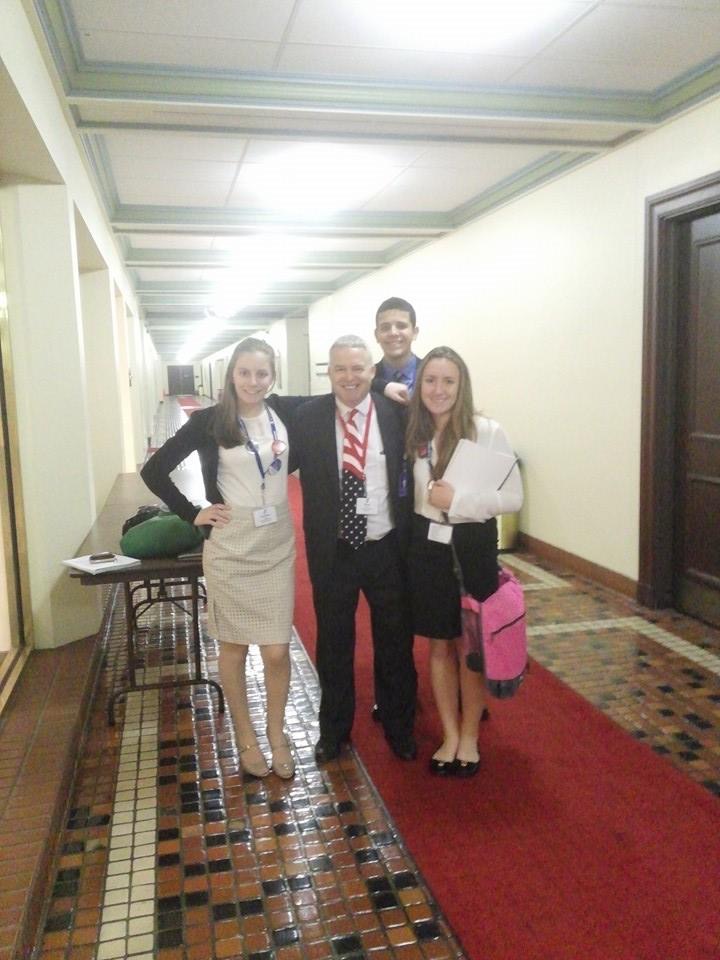
Plus, I've spent my time at college majoring in Political Science and minoring in Economics. While most of what we were learning was focused on the science aspect and the nature of how these systems and institutions work, it's an injustice to learn about without discussing both the historical and current events that play a role in them. Not to mention, my passion would never be fully extinguished, only dimmed. I would always be the girl who cried in the back of her high school sociology class because I was so overwhelmed with the Chechnynan LGBT crisis. However, I had moved into a different era of my political engagement.
Tuning out of politics is a privilege and the way in which you are able to disengage is a privilege. This a concept that during this time I have kept strongly on my mind. It's one of the major reasons I have never been able to fully vacate politics. Speaking up for others will always be so important to me, so of course, I continued engaging in social advocacy, spreading awareness, and calling representatives.
However, I was no longer caught up in those nitty-gritty and seemingly minute parts of politics. Truthfully: I used to love the boring part of politics and somewhere deep down I still do.
I have a vivid memory of spending part of my high school Orlando, Florida school trip curled up in the hotel bed watching Florida representatives debate some local issue that had nothing to do with me, a Pennsylvanian, on C-SPAN. My favorite thing to do was flip through the Pennsylvania state laws and codes, reading about the most mundane topics. I spent every election night with a pint of Ben & Jerry's staying up all night tallying votes with school looming over my head the next day. I watched the cable news instead of binging shows. I did all of this out of pure interest and excitement.
In 2016, I tuned out. I stayed informed on major federal issues and read important articles as they appeared, but I no longer actively sought out political discourse. It felt like a piece of me had disappeared. Something was wrong. While most of the world was tuning in and beginning to learn about the chaotically interesting world of politics, I began building a wall around myself and shutting it off.
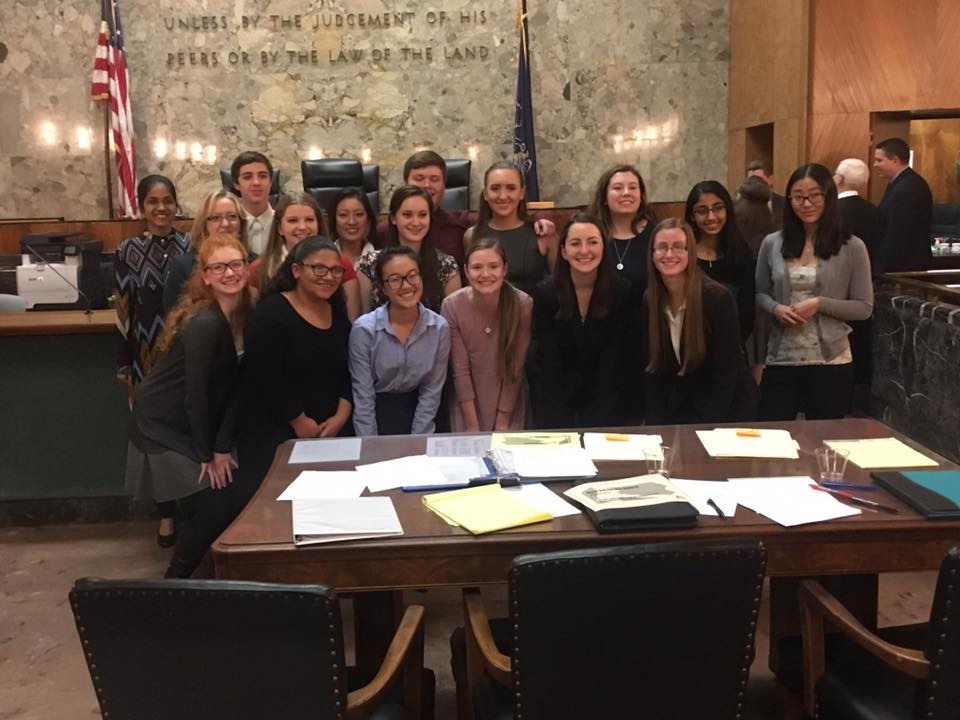
"Hey, who turned out the lights?"
Trying to understand in reflection why this happened is really hard for me, but I think it's so important.
Burnout
You can imagine someone who started thinking about politics and advocating at the age of 8 might just burnout. This is something I should have seen coming. When I was 8, while I was thinking about politics, I wasn't thinking about self-care. In fact, self-care and mental health weren't really talked about much until it became a cultural topic to discuss around 2013.
Now, there are so many amazing resources available for advocates to engage in self-care and healing while also doing amazing work. Thankfully, I've begun to learn how to play this balancing act, but when 2016 hit, I was already in a tailspin of a mental health crisis, which coupled with a need for intense activism pushed me to mentally create an emotional barrier. I could tune in long enough to attend a protest at the Philadelphia airport, but coming home and turning on the news became a chore. I learned quickly that I couldn't always be "on" or I would start to go insane. I could do the work, but I lost the joy and interest I had once had. I was suffering from intense burnout from years of self-study and engagement.
Condescension from Peers
What I Said: That specific solution or tactic won't work because of this political principle or institutional framework. A more effective way to make the change you want is this.
What They Heard: No, I disagree with everything you're saying.
It was a weird dynamic to go from practically the only one engaged in politics to my entire school banding together in the fight. At first, I felt so beyond relieved and empowered. Soon, though, I starting seeing some major red flags.
While I had years to learn the specific workings of the political process and effective civil engagement techniques, my peers were just catching up. I was so proud of them, but I also them making mistakes that I had already learned from. Political engagement, as it is fueled with such emotion, means you have to learn how to properly advocate by falling short. Many of my peers began spreading misinformation, which while I agreed with their sentiments, was simply a dangerous precedent to set. Additionally, so many were advocating for superficial solutions, which when I first started in politics I also glamorized. Self-proclaimed feminists were only engaging in white feminism and missed the whole point of intersectionality. And so, I offered help, trying to correct the course of my peer's advocacy. However, I found myself just sounding condescending, who was I to tell them they were wrong?
I quickly realized that I needed my peers to learn about politics in their own time and own way. I stepped back, still available as a resource if they needed it, but not interjecting in fear of diminishing their passion. I didn't want to turn them away from doing the work because it was so important.
College wasn't much easier. Taking what I had already learned and translating it into a degree (which I'll graduate within May) gave me at least some authority now to speak on these complex topics. However, it sometimes became insufferable to have others lecture me condescendingly (and incorrectly) about something I had been self-studying and then formally-studying for most of my life. When I offered the academic side or facts about how an institutional process works, I was often turned away. In fear of sound pretentious, I moved away from these spaces, knowing again my impact wouldn't be felt there. It was hard wanting the best for a movement or (again) agreeing with sentiments, just for my peers to spread misinformation, do the bare minimum in research, and not use me as a tool to decode what they were learning about. Again, I learned that they needed to learn things in time and in their own way-- just as I had the luxury of doing. I just did so on an accelerated course (because my crazy 8-year-old self decides politics would be my life's devotion).
We live in an era where everyone thinks they are an expert, thanks to the ability to look up any information on our phones. However, this makes it impossible to get a word in during conversations that are often oversimplified on the basis of misleading facts from Google.
Donald Trump
I LIKED boring. No one can deny that Donald Trump's era of politics has been one of the most interesting to study of all. In fact, in my freshman year of college in 2017 I remember a professor telling me that while our textbook was important, it was extremely wrong in some regards and needed to be updated because Donald Trump had changed things forever.
Academics had a field day in studying the phenomenons that were occurring. Theorists started exploring intersections in social media communication and politics. It's an interesting time, but I like watching slow-moving fillibusters and I care about the semantics of specific legislation. Donald Trump's presidency has sensationalized politics to the point where the things I'm interested in can't even be discussed because we're too caught up in whatever crazy thing he's said this time.
Personal Trauma
